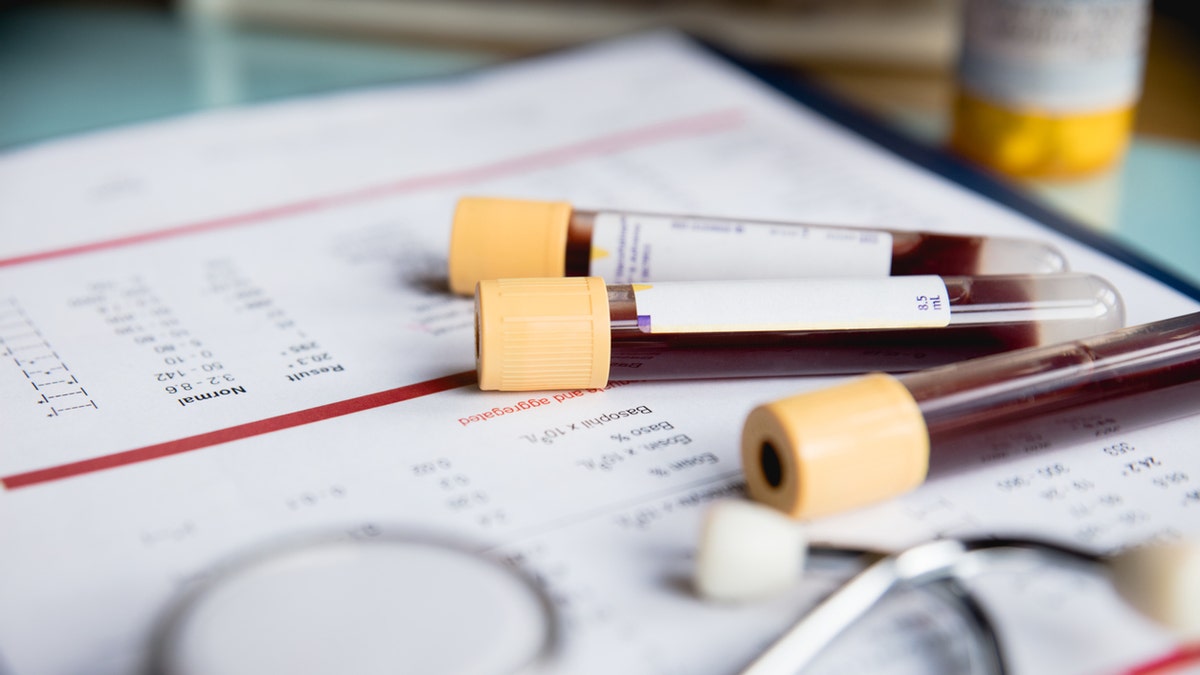Fox News Flash top headlines for July 29
Fox News Flash top headlines are here. Check out what's clicking on Foxnews.com.
A new blood test was able to spot Alzheimer's disease on par with pricey brain imaging and spinal taps, researchers found.
The team, which included researchers from Sweden, published their findings on Tuesday in JAMA.
The test may offer a cheaper route for Alzheimer’s diagnostic testing, though it could take years to validate as a reliable option, USA TODAY reported.
Study lead Dr. Oskar Hansson, professor of neurology at Lund University and consultant neurologist at Skåne University Hospital, said in a company release that most people with the disease around the world do not get a timely diagnosis, resulting in "suboptimal symptomatic treatment and care."
WHY DO SOME CORONAVIRUS PATIENTS LOSE SENSE OF SMELL? HARVARD RESEARCHERS HAVE AN ANSWER
"Differentiating AD (Alzheimer's disease) pathology from other kinds of cognitive impairment is an important step in advancing our understanding of how the disease is impacting those living with it," said Jeffrey Dage, Ph.D., senior research adviser, Lilly, and co-author of the study, in a company news release. "As research progresses and we are able to identify AD earlier, we hope to tailor future treatment advances to the right patients at the right time."
The cross-sectional three-cohort study showed the Colombian cohort found signs of the cognitive disease 20 years before anticipated symptom onset among carriers of a genetic mutation.
The blood test works by measuring the tau protein as a biomarker for the disease. Concentrations of plasma tau (P-tau217) were measured using immunoassays at Lilly Research Laboratories. The study noted that at least 89 percent of cases were correctly classified.

A new blood test was able to spot Alzheimer's disease on par with pricey brain imaging and spinal taps, researchers found. (iStock)
Study authors said the P-tau217 test had “significantly higher accuracy than established plasma- and MRI-based biomarkers.”
"It is a promising blood test that seems to be highly accurate and seems to detect (Alzheimer's) relatively early," Dr. Eric Reiman, a co-senior author who supported the research on the Colombian cohort, told the outlet.
GOOD SENSE OF SMELL MAY INDICATE LOWER RISK OF DEMENTIA IN OLDER ADULTS: STUDY
Randall J. Bateman, a Washington University neurology professor and Alzheimer's researcher, told the outlet that a blood test detecting Alzheimer’s before the onset of symptoms “is going to be transformational” for studies trying to curb the disease.
"If we can prevent those symptoms from coming on, that’s the reason we’re so excited by these kinds of biomarkers," he said. "And we think, in the right combination, these blood biomarkers will also tell us about when someone will become sick. That’s going to be very useful in the clinic when we triage these patients."
Researchers noted further research is needed to improve the assay and validate the findings in unselected and diverse populations.








































